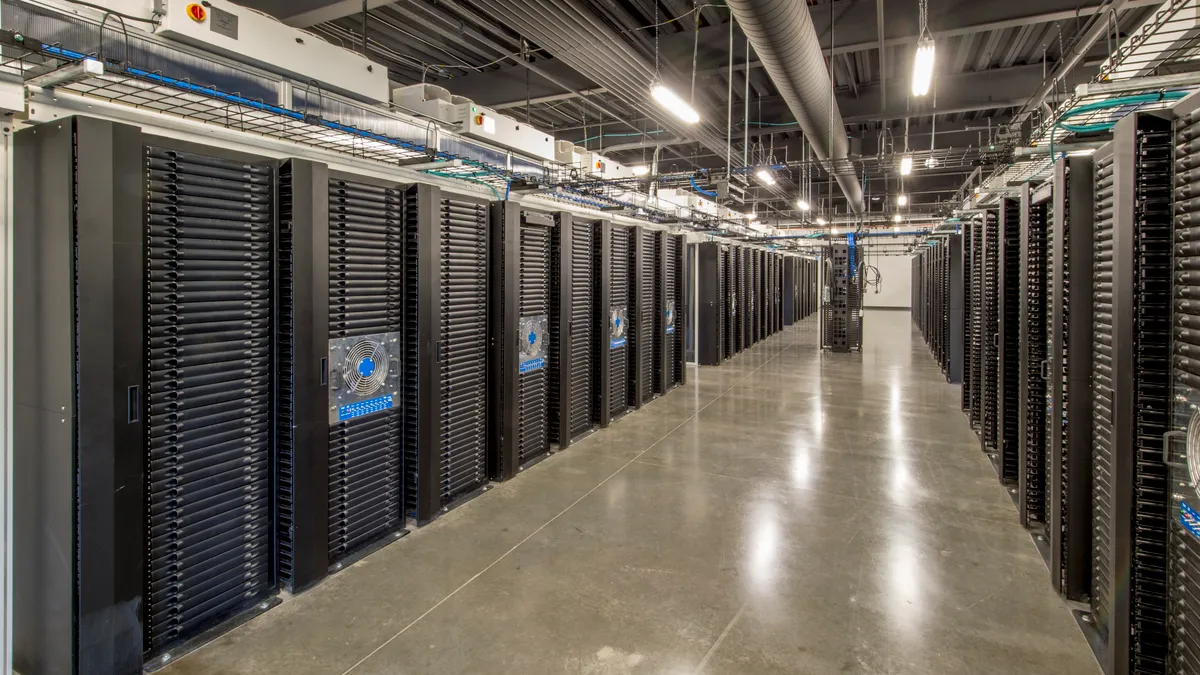Building operators and commercial real estate portfolio managers are turning to artificial intelligence and data analytics to enhance their operations and improve decision-making. At the RETCON 2024 conference in New York last month, industry experts highlighted the impact of AI on various aspects of facilities management and data center demand.
Josh Panknin, director of real estate artificial intelligence research and innovation at Columbia University, emphasized the need to move past the hype surrounding AI and focus on its fundamental principles.
Just as making a turkey sandwich involves assembling various ingredients to make each component, like flour, yeast, eggs and water for the bread, real estate managers need to define the desired outcomes and identify the required data to reach those outcomes, Panknin said. It is important to structure problems appropriately for AI solutions by translating real-world issues into quantitative representations, he said.
Problems concerning office leases, for example, have specific inputs relevant to the problem, so structuring the problem is the first step toward solving it. But “there is a big gap between how AI is discussed and what it takes to develop these tools effectively,” Panknin said.
Data quality is key to successfully implementing AI for automating processes such as lease document ingestion and customer sentiment analysis, said Aaron Altscher, director of technology initiatives at Carr Properties. “We’re working with a facilities management team to develop a customer sentiment score that evaluates how people respond to work order management,” he said.
As new sensors are integrated into existing infrastructure, developing a common data model that can accommodate these features is important, Altscher added. A common data model of this sort ensures that all data collected from various sensors and systems can be effectively analyzed and used to evaluate indoor air quality for occupants, for example. Organizations that lack robust data sets for indoor air quality assessments may miss out on valuable insights and opportunities for improving occupant comfort and safety, Altscher explained.
AI can also help connect disparate data sources, streamlining data integration and automating processes to enable more informed decision-making, according to Sandy Jacolow, senior vice president and chief technology officer at Empire State Realty Trust, and Armel Traore dit Nignan, head of real estate data and analytics at Principal Asset Management.
“[The industry has] a lot of [data] silos. People have their own property management systems. What we’re finding is that it becomes challenging … to connect the dots,” Jacolow said. “So, we’re bringing in automation to help connect the dots. You need translation tables so that when you start to run client details across systems, you can streamline easily and start connecting the dots.” Citing an example of how bringing this data together across systems can provide a better picture of building occupancy, Jacolow added, “If occupancy is down, I can lower my staff accordingly.”
The right decision-making is “crucial for leasing activity,” Traore dit Nignan said, noting that data-driven models can be used to improve efficiency in managing portfolios. He pointed to a need for cross-functional teams and partnerships with technology experts to effectively leverage AI and data analytics in commercial real estate.
AI’s impact on data center demand
As AI’s integration in management grows, so does the need for robust infrastructure to support it. The increasing reliance on AI is driving significant demand for data center space.
Since 2018, AI model computing power requirements have increased a hundredfold, reflecting the technology’s exponential growth, and investors are increasingly interested in investing in data centers to meet that need, said Sondra Wenger, head of the Americas commercial operator division for CBRE Investment Management.
Principal Asset Management’s Traore dit Nignan pointed to record investments in data centers driven by the AI boom, particularly from hyperscalers like Amazon Web Services, Microsoft and Google.
Power and land are increasingly scarce, especially in major data center markets like Northern Virginia and Dallas, Wenger said, echoing a trend JLL highlighted in a February data center report. Hyperscalers are demanding larger leases to ensure enough pipeline capacity, and lease rates will continue to grow, Wenger said. This expected growth follows an increase in data center rents, Wenger said. CBRE data released in March shows that average asking rents in key North American data center markets, including Chicago, Phoenix and Silicon Valley, rose by as much as 54% over the last eight months.
Meanwhile, there are cybersecurity concerns about the safety of all the data stored in data centers, according to MaryJean Koontz, vice president at Compass Commercial, which represents both buyers and sellers in the market. Data center operators need to think about how to protect all that data, she said in an interview.






















